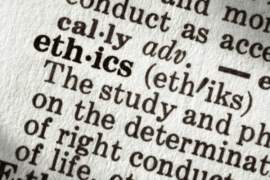
Being a Holder Through the HDC

The shelter principle has its origins in common property law, where it actually ensures that those who purchase from a bona fide purchaser come to hold the rights of a bona fide purchaser themselves. Negotiable instruments law is similar to this basic contract law, and as a result, the shelter principle was transferred so as to keep negotiable instruments in line with the rest of the law.
The shelter principle ensures that a transferee is afforded the same rights to a negotiable instrument as the transferor to generally assist in the flow of the contracts and to prevent them from being caught up in litigation, as such litigation might lead them to be unusable or unsellable. The problems of the shelter principle in terms of negotiable instruments are not insignificant, however, as the shelter principle would seem to nullify the very point of holder in due course status being regulated and somewhat difficult to obtain.
If the shelter principle allows for parties that would otherwise have no way to obtain holder in due course status to gain the benefits and protections of that status, then it would undermine the efficacy of those restrictions, or so it would seem. But the shelter principle exists primarily to prevent the lack of HDC status among potential purchasers from negatively affecting the trade in negotiable instruments . For more information about the shelter principle and what exactly it entails, follow the link.
Limitations
Because the shelter principle does hold within it the potential for undermining the safeties built into holder in due course under the Uniform Commercial Code, there are certain limitations attached to the Code. Specifically, the shelter principle will not protect those who had already interacted with a given negotiable instrument without having holder in due course status.
What this means is that if a given individual or party had held a negotiable instrument without having holder in due course status, then that individual or party can never improve its status through implementation of the shelter principle. It will only ever have the rights afforded to it in its initial interactions with the negotiable instrument.
This would ensure that a party which had originally participated in some fraudulent practice regarding the instrument, or had otherwise acted in such a way as to prevent it from having holder in due course status, would not then later be able to gain the protection of holder in due course status by manipulating the shelter principle.
This limitation, however, is not perfect at preventing any such deceptive or manipulative practices. Find out more about the limitations of the shelter principle and their flaws by clicking the link.
NEXT: Know Your Methods of Taking for Value





















